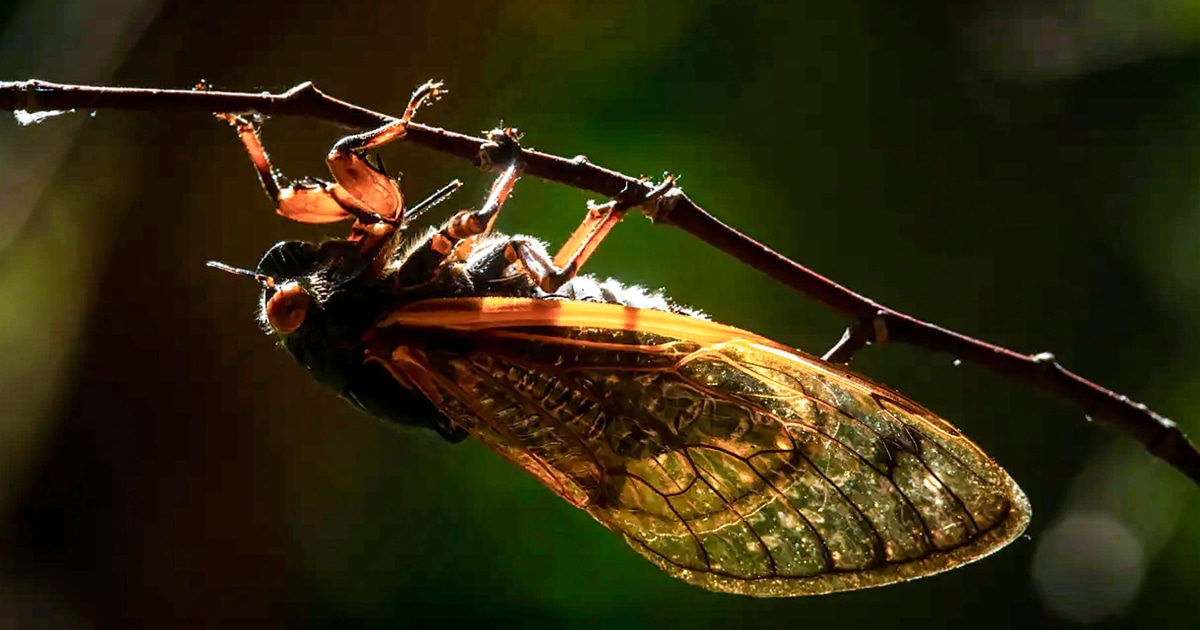In the meantime, far fewer insects are traveling on meadows and in forests in Germany than they were a decade ago. This is confirmed by new data from three regions, which researchers have evaluated under the direction of the Technical University of Munich (TUM). At least in the grasslands, the species decline is probably related to intensive agriculture, write the scientists in the journal "Nature".
So far, there are only occasionally larger data collections in Germany on the development of insect numbers in recent decades. The team around Sebastian Seibold of the chair of Terrestrial Ecology of the TUM regularly collected insects and other arthropods such as arachnids and millipedes at altogether 290 locations in three regions of Germany between 2008 and 2017:
- on the Swabian Alb in southern Germany,
- in Hainich , a wooded ridge in Thuringia, as well as
- in the Schorfheide in Brandenburg.
Overall, the researchers analyzed data from more than one million arthropods, which belonged to more than 2700 species. Both on meadows and in forests, the diversity of the species studied decreased by about one third during the period under study. Their total mass also decreased, especially in grasslands - by 67 percent . In the forests, it shrank by about 40 percent . The influence of fluctuating weather conditions was taken into account by the researchers during the evaluation.
"We did not expect that such a decline can be detected over a decade - that is frightening , but it fits in with the picture that more and more studies are drawing," says Wolfgang Weisser of the TUM, one of the initiators of the project.
"Agriculture must be part of the solution"
The dramatic decline in insect diversity and the possible reasons for it have been increasingly discussed for some time. The phenomenon occurs worldwide. Attention in Germany was provided above all by the analyzes of volunteer entomologists from the Entomological Association Krefeld , which indicate massive insect wasting in parts of Germany. According to data published in 2017 in the journal "PLoS One", the total mass of flying insects decreased by more than 75 percent between 1989 and 2016.
You might also be interested in
The group around Seibold now examined 150 sites in grasslands twice a year. Of the total of 140 forest sites, 30 were inspected once a year, the remainder at three years within the decade. In the fields, the researchers collected the insects and the other crawlers with nets from the grass, in the woods they set traps.
Insect swelling was particularly pronounced on grasslands surrounded by cultivated arable land . Further studies are needed to better understand the effects of agriculture .
At the German Farmers' Association you can see this as follows: "The study shows us that agriculture must be part of the solution ." Hardly any industry is as essential to the pollinating performance of bees and insects as we are, "said Association President Joachim Rukwied. Set on cooperative nature conservation . This year, for example, farmers would have voluntarily planted more than 230,000 kilometers of flowering strips as habitat for insects on the edges of fields.
In September, the Federal Government decided on an action program for insect repellent. In addition to a ban on the controversial herbicide glyphosate from 2024, it also provides 100 million euros in additional annual support for insect repellent in the agricultural landscape.












